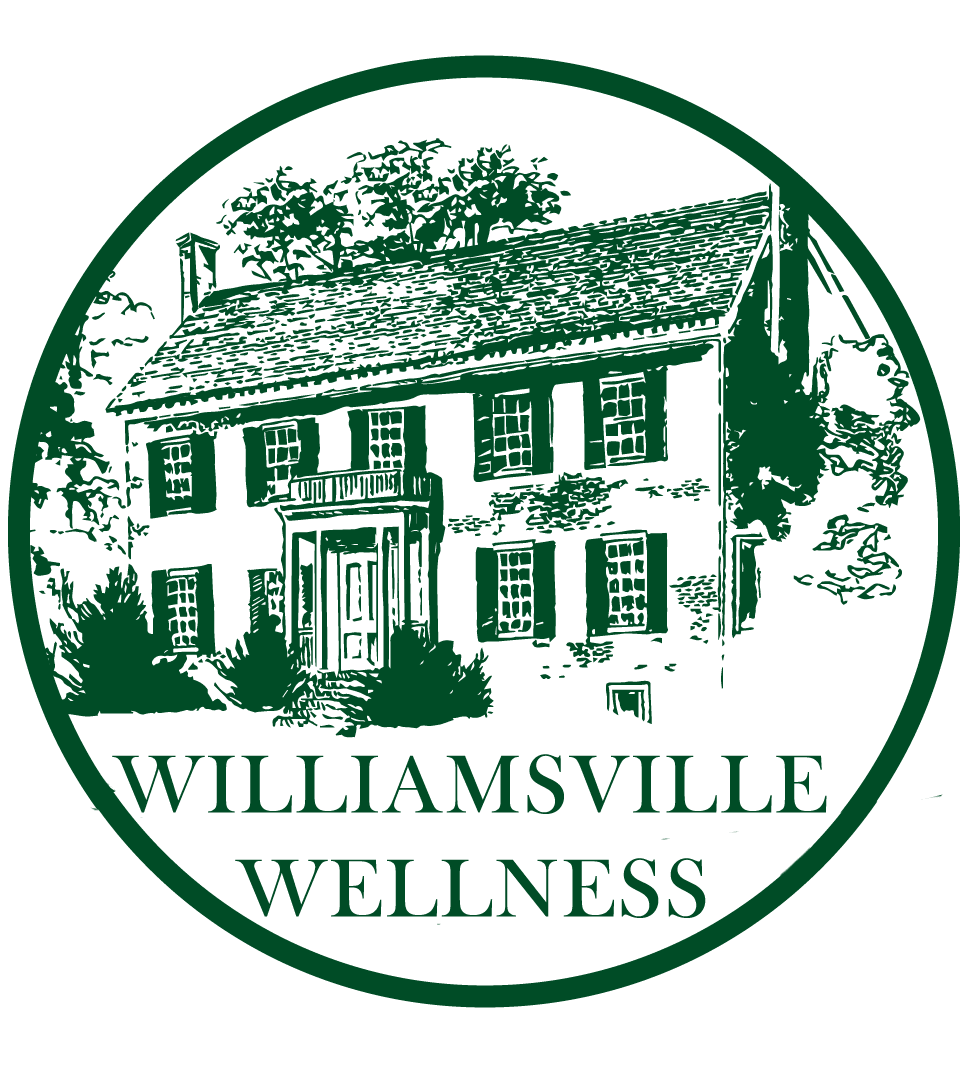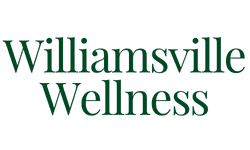Signs Your Loved One Needs Addiction Help
Recognizing the critical indicators that someone you care about is struggling with substance abuse or gambling addiction
📚 What You'll Discover in This Guide
- Understanding the Warning Signs
- Physical and Health Changes
- Behavioral and Social Shifts
- Emotional and Mental Health Indicators
- Financial and Legal Red Flags
- Gambling Addiction Warning Signs
- Substance-Specific Indicators
- How to Approach Your Loved One
- When Professional Intervention is Needed
- Family Support and Resources
Watching someone you love struggle with addiction is one of life's most heartbreaking experiences. Understanding the signs your loved one needs addiction help may develop gradually, making them difficult to recognize initially, or they might appear suddenly, leaving families feeling shocked and unprepared. Recognizing these critical warning signs can be the difference between early intervention and a crisis that threatens their health, relationships, and future.
Learning to identify the signs your loved one needs addiction help isn't about becoming a detective or assuming the worst about every behavior change. It's about understanding the patterns that indicate someone is losing control of their life to substances or addictive behaviors, and knowing when professional intervention becomes necessary.
The challenge for families lies in distinguishing between normal life stress, temporary behavioral changes, and genuine signs of addiction. Many of the early warning signs can mimic other conditions or life circumstances, making it crucial to understand the broader patterns rather than focusing on isolated incidents.
Addiction doesn't discriminate based on age, education, income, or family background. It can affect anyone, and the signs may manifest differently depending on the individual's personality, the type of substance or behavior involved, and their life circumstances. This guide will help you understand the various indicators that suggest professional addiction treatment may be necessary.

Early recognition of warning signs can lead to timely intervention and better outcomes
Understanding the Signs Your Loved One Needs Addiction Help
The signs that your loved one needs addiction help typically fall into several categories: physical, behavioral, emotional, social, and financial. These indicators often appear gradually and may be dismissed initially as temporary stress, work pressure, or personal challenges. However, when multiple signs appear together or persist over time, they may indicate a serious problem requiring professional intervention.
It's important to understand that addiction is a progressive condition. The early signs may be subtle – perhaps your loved one seems more irritable than usual, has difficulty sleeping, or seems to have less energy. As the addiction progresses, these signs become more pronounced and additional symptoms emerge.
One of the most challenging aspects of recognizing addiction signs is that individuals often become skilled at hiding their substance use or addictive behaviors. They may function normally in some areas of their life while struggling significantly in others, a phenomenon known as high-functioning addiction. This can make it particularly difficult for families to recognize the severity of the problem.
The key to recognizing when your loved one needs help lies in observing patterns rather than isolated incidents. Everyone has bad days, periods of stress, or times when they might drink a bit more or engage in concerning behaviors. However, addiction creates persistent patterns that worsen over time and begin to interfere with multiple areas of life.
Family members are often the first to notice these patterns because they observe the person across different situations and time periods. They see changes in daily routines, mood patterns, relationship dynamics, and personal priorities that outsiders might miss. This positions families as crucial early warning systems for addiction recognition.
The progression of addiction typically follows predictable stages, each with its own warning signs. Understanding these stages can help families recognize where their loved one might be in the addiction process and what type of intervention might be most appropriate. Early-stage signs are typically more subtle and may include increased tolerance, occasional lying about use, or mild neglect of responsibilities. As addiction progresses, the signs become more obvious and severe, ultimately requiring comprehensive addiction treatment.

Open family communication is essential when concerns about addiction arise
Physical and Health Changes
Physical changes are often among the most noticeable signs your loved one needs addiction help. These changes can be dramatic or subtle, depending on the substance involved, the duration of use, and individual factors. While some physical signs appear quickly, others develop gradually over months or years.
🚨 Physical Warning Signs
- Sudden weight loss or gain without dietary changes
- Bloodshot or glazed eyes, dilated or constricted pupils
- Frequent nosebleeds (particularly with stimulant use)
- Changes in sleep patterns - insomnia or excessive sleeping
- Tremors, shaking, or coordination problems
- Unexplained bruises, marks, or injuries
- Poor hygiene and grooming habits
- Frequent illness or seeming run down
- Changes in appetite or eating patterns
- Slurred speech or impaired coordination
Sleep disturbances are particularly common across all types of addiction. Your loved one might stay awake for days during stimulant binges, then crash and sleep for extended periods. Alternatively, they might experience chronic insomnia, restlessness, or nightmares, particularly during periods of withdrawal or when trying to cut back on their substance use.
Changes in physical appearance often reflect the prioritization that occurs in addiction. As the substance or behavior becomes more important, self-care activities like regular showering, dental hygiene, appropriate clothing, and grooming decline. These changes may be gradual and initially attributed to depression, stress, or busy schedules.
Weight changes can be particularly dramatic and concerning. Stimulant use often leads to rapid weight loss as appetite decreases and metabolism increases. Alcohol abuse can cause both weight gain (from calories in alcohol) and weight loss (from poor nutrition and digestive issues). Opioid use often leads to weight loss and a gaunt appearance.
The eyes often provide clear indicators of substance use. Different substances affect the eyes in characteristic ways – bloodshot eyes from alcohol or marijuana use, dilated pupils from stimulants or hallucinogens, constricted pupils from opioids. Family members who spend regular time with their loved one often notice these subtle but consistent changes.
Physical health complications may also emerge, even in younger individuals. Frequent colds, infections, or general illness can indicate a compromised immune system from substance abuse. Liver problems from alcohol abuse, respiratory issues from smoking substances, or heart problems from stimulant use may develop and require medical attention.

Physical health changes often provide the earliest indicators of substance abuse
For individuals struggling with prescription drug addiction, the physical signs might be more subtle initially but can include taking medications more frequently than prescribed, seeking early refills, or experiencing withdrawal symptoms between doses. Understanding prescription drug addiction patterns can help families recognize when legitimate medical use has crossed into problematic territory.
It's important to note that some physical changes might be attributed to other causes, making professional evaluation crucial when multiple signs appear together. A medical assessment can help determine whether physical changes are related to substance use or other health conditions, providing families with the information they need to make informed decisions about intervention.
Behavioral and Social Shifts
Behavioral changes often provide the clearest signs your loved one needs addiction help. These changes typically involve shifts in priorities, social connections, daily routines, and personal responsibilities that reflect the increasing importance of the addictive substance or behavior in their life.
One of the most significant behavioral changes is the gradual abandonment of previously important activities and relationships. Your loved one might stop participating in hobbies they once enjoyed, skip family gatherings, or lose interest in work or academic pursuits. This occurs because the addiction begins to dominate their time, energy, and mental focus.
Social circle changes are particularly telling. Individuals developing addiction often begin associating with new friends who share their substance use patterns while distancing themselves from family members and friends who might question their behavior. These new relationships often center around the shared addiction rather than deeper personal connections.
🔍 Behavioral Red Flags
When someone's entire social circle changes rapidly, especially if the new friends are secretive or concerning to family members, this often indicates addiction has become a central organizing factor in their life.
Lying and secretive behavior typically increase as addiction progresses. Your loved one might lie about where they've been, who they were with, how they spent money, or why they seem different. They may become defensive when asked simple questions about their activities or whereabouts, often responding with anger or accusations rather than straightforward answers.
Work or school performance changes are common indicators that require attention. This might include frequent absences, declining grades or work quality, missed deadlines, conflicts with supervisors or teachers, or job loss. The cognitive impairment and preoccupation that accompany addiction make it difficult to maintain previous performance levels.
Legal problems may begin to emerge, ranging from traffic violations (especially DUI) to more serious charges related to substance possession, theft to fund addiction, or violence during intoxication. Even individuals with no previous legal history may find themselves facing criminal charges as their addiction progresses.

Social isolation and withdrawal from family often signal developing addiction problems
Risk-taking behaviors often increase dramatically. Your loved one might engage in dangerous activities they would never have considered previously – driving under the influence, combining substances, engaging in risky sexual behavior, or putting themselves in dangerous situations to obtain substances or continue addictive behaviors.
Daily routine disruptions become increasingly common. Sleep schedules become erratic, meal patterns change, personal hygiene suffers, and previously maintained household responsibilities are neglected. The structure that addiction imposes on someone's life gradually replaces healthy routines and self-care practices.
For gambling addiction specifically, behavioral changes might include secretive phone calls or computer use, unexplained absences, lying about whereabouts, and emotional volatility related to wins and losses. Understanding the specific signs of gambling addiction can help families recognize when gaming or betting has become problematic.
Technology and communication patterns often change as well. Your loved one might become protective of their phone, computer, or personal spaces. They may delete text messages, use multiple phones, or become secretive about their online activities. These changes reflect the secretive nature that typically develops around addictive behaviors.
Aggressive or violent behavior may emerge, particularly during withdrawal periods or when substance use is questioned or interrupted. This aggression might be verbal or physical and often represents a dramatic departure from their previous personality, indicating that professional addiction treatment services are urgently needed.
Emotional and Mental Health Indicators
Emotional and mental health changes often provide the most concerning signs that your loved one needs addiction help. Addiction fundamentally alters brain chemistry, affecting mood regulation, emotional stability, and mental clarity in ways that can be frightening for both the individual and their family members.
Mood swings typically become more extreme and unpredictable as addiction progresses. Your loved one might experience intense euphoria followed by deep depression, explosive anger over minor issues, or complete emotional numbness. These mood changes often correlate with their substance use patterns or gambling wins and losses, creating an emotional rollercoaster that affects the entire family.
Depression frequently accompanies addiction, whether as a pre-existing condition that contributed to substance use or as a consequence of the addiction itself. Signs include persistent sadness, hopelessness, loss of interest in previously enjoyed activities, sleep disturbances, and thoughts of suicide. The relationship between addiction and depression is complex and often requires dual diagnosis treatment approaches.
Anxiety levels often increase significantly, manifesting as constant worry, panic attacks, social anxiety, or generalized fearfulness. Your loved one might seem constantly on edge, easily startled, or unable to relax. This anxiety may be related to withdrawal symptoms, fear of being discovered, or concern about the consequences of their addiction.
🧠 Mental Health Warning Signs
- Extreme mood swings or emotional volatility
- Persistent depression or suicidal thoughts
- Increased anxiety or panic attacks
- Paranoia or suspicious thinking
- Memory problems or confusion
- Inability to concentrate or focus
- Emotional numbness or detachment
- Explosive anger or irritability
- Loss of motivation or apathy
- Cognitive impairment or disorientation
Cognitive changes can be particularly alarming for families. Your loved one might experience memory problems, difficulty concentrating, poor judgment, or confusion. These changes reflect the impact of substances on brain function and can affect their ability to work, maintain relationships, or make sound decisions about their safety and wellbeing.
Paranoia and suspicious thinking sometimes develop, particularly with certain substances or during withdrawal periods. Your loved one might become convinced that family members are plotting against them, that their phone is tapped, or that they're being followed. This paranoia can severely damage family relationships and create additional stress for everyone involved.
Emotional regulation becomes increasingly difficult as addiction progresses. Minor frustrations might trigger intense rage, small disappointments might lead to complete despair, or emotional reactions might seem completely inappropriate to the situation. This emotional dysregulation often frightens family members and makes normal communication extremely challenging.

Emotional instability and mental health changes are serious indicators requiring professional attention
The development of tolerance and withdrawal symptoms creates additional emotional stress. Your loved one might become anxious or agitated when unable to access their substance of choice, experience physical discomfort during withdrawal, or seem desperate to avoid these uncomfortable states. Understanding withdrawal patterns can help families recognize the severity of physical dependence.
Shame and guilt often intensify as addiction progresses, creating a vicious cycle where negative emotions drive continued substance use, which then creates more shame and guilt. Your loved one might express self-hatred, hopelessness about their future, or belief that they're beyond help. These feelings can be particularly dangerous if they lead to suicidal thoughts or behaviors.
Loss of emotional connection with family members is particularly painful for loved ones to witness. The person who once shared their feelings, celebrated achievements, and sought comfort during difficult times might become emotionally distant, unresponsive to family celebrations or crises, or seem incapable of genuine emotional intimacy.
Financial and Legal Red Flags
Financial problems often provide some of the most concrete and undeniable signs that your loved one needs addiction help. The cost of maintaining an addiction can quickly overwhelm even substantial financial resources, leading to behaviors that would have been unthinkable before the addiction developed.
Unexplained financial problems are among the earliest warning signs. Money disappears from joint accounts, valuable items go missing from the home, or your loved one can't account for how they spent their paycheck. They might ask for loans repeatedly, claim their wallet was stolen frequently, or seem to have financial emergencies more often than reasonable.
In gambling addiction cases, financial signs can be particularly dramatic and rapid. Large sums of money might disappear overnight, credit cards might be maxed out suddenly, or significant debts might accumulate quickly. The financial destruction from gambling addiction can be catastrophic and requires immediate professional gambling addiction treatment.
Early Financial Changes
Unexplained spending, frequent money requests, and missing cash or valuables from the home
Escalating Financial Problems
Missed bill payments, maxed out credit cards, and borrowing money from multiple sources
Desperate Financial Measures
Stealing from family or friends, pawning valuables, and engaging in illegal activities for money
Financial Crisis
Complete financial devastation requiring comprehensive addiction treatment and financial counseling
Theft often begins within the family before extending to others. Your loved one might steal cash from purses or wallets, take valuable items to pawn or sell, or use family credit cards without permission. This theft typically starts small and escalates as their addiction requires more funding and their desperation increases.
Legal problems related to financial issues may develop, including bad checks, credit card fraud, theft charges, or embezzlement from employers. Many individuals with no previous criminal history find themselves facing serious financial crime charges as their addiction drives increasingly desperate behaviors to obtain funding.
Employment-related financial problems often emerge as addiction affects work performance. Your loved one might miss work frequently, leading to lost income, or might steal from their employer, leading to job loss and potential criminal charges. The combination of increased expenses from addiction and decreased income from work problems creates a financial crisis that often motivates families to seek help.

Financial red flags often provide the most concrete evidence that professional intervention is needed
Borrowing money becomes increasingly frequent and desperate. Your loved one might ask different family members for loans without telling others, claim various emergencies that require immediate cash, or promise to repay money that never gets repaid. They might also turn to predatory lending, advance payment schemes, or high-interest loans that create additional financial pressure.
When family members discover the extent of financial damage, it often represents a crisis point that motivates intervention. The combination of financial devastation and the recognition that addiction drove these problems often helps families understand the severity of the situation and the need for professional help.
For families, financial boundaries become crucial when addiction is suspected. Continuing to provide money, pay bills, or bail out financial problems often enables the addiction to continue. Understanding when financial support becomes enabling rather than helping is essential for motivating recovery.
Gambling Addiction Warning Signs
Gambling addiction presents unique signs your loved one needs addiction help that differ from substance abuse indicators. Unlike substance addiction, gambling addiction doesn't involve physical substances, but it creates powerful neurochemical changes that can be just as compelling and destructive.
Preoccupation with gambling activities becomes increasingly obvious as the addiction progresses. Your loved one might constantly talk about gambling, spend excessive time researching betting strategies, follow sports obsessively for betting purposes, or seem unable to focus on conversations that don't relate to gambling activities.
Chasing losses is a hallmark behavior of gambling addiction. After losing money, your loved one becomes desperate to win it back through additional gambling, often leading to even larger losses. This pattern creates an escalating cycle where losses drive more gambling rather than serving as a deterrent.
🎰 Gambling-Specific Signs
The need to bet increasing amounts of money to achieve the same excitement, combined with restlessness when trying to cut back, indicates that gambling has become addictive rather than recreational.
Emotional volatility related to gambling outcomes becomes extreme. Your loved one might experience intense euphoria after wins and devastating depression after losses. These emotional swings often seem disproportionate to the actual amounts won or lost and can affect their mood for days or weeks.
Secretive behavior around gambling activities increases as the addiction progresses. Your loved one might lie about their whereabouts when gambling, hide their phone or computer activity, use multiple accounts or credit cards for gambling, or seem defensive when asked about their activities or finances.
Time spent gambling expands significantly beyond recreational levels. Your loved one might gamble for hours at a time, lose track of time while gambling, skip work or family obligations to gamble, or seem unable to stop gambling even when they want to. Understanding how gambling affects the brain helps explain why stopping becomes so difficult.

Gambling addiction creates unique behavioral patterns that families should recognize
Financial patterns specific to gambling addiction include large, unexplained withdrawals from ATMs (often at casinos), frequent credit card advances, maxed-out credit lines, and a pattern of financial secrecy. The speed at which financial damage occurs in gambling addiction can be particularly shocking to families.
Relationship problems intensify as gambling takes priority over family time, responsibilities, and emotional availability. Your loved one might miss important family events to gamble, seem distracted during family time, or become angry when gambling plans are interrupted by family needs.
The development of superstitious or magical thinking around gambling is common. Your loved one might believe they have special systems or strategies, feel they're "due" for a win, or develop elaborate rituals around gambling activities. This thinking pattern often prevents them from recognizing the randomness of gambling outcomes.
Substance-Specific Indicators
Different substances create distinct warning signs that can help families understand what their loved one might be using and the urgency of intervention needed. Recognizing substance-specific indicators allows for more targeted help and better understanding of the risks involved.
Alcohol addiction signs often develop gradually and may be normalized in social contexts initially. However, warning signs include drinking alone regularly, drinking earlier in the day, inability to limit alcohol consumption, drinking despite negative consequences, and physical symptoms like tremors, sweating, or nausea when not drinking. Alcohol addiction treatment becomes necessary when drinking interferes with daily functioning.
Opioid addiction indicators include constricted pupils, nodding off at inappropriate times, track marks or unexplained wounds, possession of drug paraphernalia, stealing prescription medications, doctor shopping, and withdrawal symptoms like flu-like illness, anxiety, and intense cravings. Opioid addiction often begins with prescription medications before progressing to illegal substances.
Stimulant abuse signs include dilated pupils, increased energy followed by crashes, rapid weight loss, insomnia, paranoia, aggressive behavior, and repetitive or obsessive behaviors. Methamphetamine use specifically often causes dental problems, extreme weight loss, and skin picking or sores.
💊 Prescription Drug Abuse Signs
- Taking medications more frequently than prescribed
- Seeking early refills or multiple prescriptions
- Doctor shopping or pharmacy shopping
- Crushing, snorting, or injecting oral medications
- Combining medications with alcohol
- Stealing or buying prescription medications
- Withdrawal symptoms between doses
- Inability to manage pain or anxiety without medication
- Preoccupation with obtaining medications
- Lying about symptoms to obtain prescriptions
Marijuana addiction, while often considered less serious, can create significant problems including persistent cough, red eyes, impaired coordination, memory problems, decreased motivation, and social isolation. The potency of modern marijuana products has increased dramatically, making addiction more likely and severe than in previous decades.
Cocaine use indicators include dilated pupils, increased energy and talkativeness, nosebleeds, weight loss, insomnia, and aggressive behavior. Crack cocaine use often leads to more rapid addiction development and more severe behavioral changes than powder cocaine.
Benzodiazepine addiction signs include drowsiness, confusion, slurred speech, poor coordination, memory problems, and dangerous withdrawal symptoms including seizures. This type of addiction is particularly dangerous because withdrawal can be life-threatening without medical supervision.

Understanding substance-specific signs helps families seek appropriate professional help
Synthetic drug use creates unpredictable and often dangerous symptoms including hallucinations, violent behavior, hyperthermia, and emergency medical situations. These substances are particularly concerning because their effects are unpredictable and potentially life-threatening.
Polysubstance abuse, where multiple substances are used together, creates complex symptoms and significantly increases health risks. Your loved one might combine alcohol with prescription medications, use stimulants and depressants together, or mix legal and illegal substances in dangerous ways.
The progression from prescription medication to illegal substances is increasingly common, particularly with opioids. Families should be aware that legitimate medical treatment can evolve into addiction, requiring specialized treatment approaches that address both pain management and addiction recovery.
How to Approach Your Loved One
Once you've recognized the signs your loved one needs addiction help, approaching them about your concerns requires careful planning, compassion, and realistic expectations. The way you initiate this conversation can significantly impact whether they're receptive to getting help or become more defensive and secretive about their behavior.
Timing is crucial when addressing addiction concerns. Approach your loved one when they're sober or not actively engaged in addictive behaviors, when you have privacy and won't be interrupted, and when you're calm and prepared for various reactions. Avoid confronting them immediately after discovering evidence of their addiction, as emotions may be too high for productive conversation.
Use "I" statements to express your concerns rather than accusatory language. Instead of saying "You're a drug addict," try "I'm worried about some changes I've noticed in your behavior and health." Focus on specific behaviors you've observed rather than making general character judgments or predictions about their future.
Approach the conversation with love and concern rather than anger or judgment. Remember that addiction is a medical condition, not a moral failing, and your loved one likely feels shame and fear about their situation already.
Be prepared for denial, anger, or deflection. These are normal responses when someone feels confronted about their addiction. Don't take their initial reaction personally, and don't feel you need to prove your concerns in a single conversation. Sometimes planting seeds of awareness is more effective than demanding immediate acknowledgment.
Offer specific help rather than general statements. Instead of saying "I'm here if you need anything," offer to research treatment options, accompany them to appointments, help with childcare during treatment, or assist with other practical concerns that might prevent them from seeking help.
Set clear boundaries about what behaviors you will and won't accept while still expressing love and support for them as a person. For example, you might say, "I love you and want to help you get well, but I can't continue to give you money or cover for you when you miss work."

Approaching loved ones with compassion and specific support offers the best chance for positive outcomes
Educate yourself about addiction and treatment options before the conversation so you can provide accurate information and realistic hope. Understanding how family dynamics influence addiction can help you avoid common mistakes that might push your loved one away or enable their continued substance use.
Consider involving other family members or friends who share your concerns, but avoid ganging up on your loved one or making them feel attacked. A coordinated approach where multiple people express similar concerns can be effective, but it should feel supportive rather than confrontational.
Be patient and persistent. Rarely does someone agree to seek help after a single conversation. Many people need multiple conversations, experiences with consequences, or crisis situations before they're ready to acknowledge their need for help and commit to recovery.
Document specific incidents and concerns so you can speak factually about the changes you've observed. This helps prevent your loved one from minimizing the situation or claiming you're overreacting. However, present this information compassionately rather than as evidence in a trial.
When Professional Intervention is Needed
Sometimes family conversations aren't sufficient to motivate someone to seek addiction help, and professional intervention becomes necessary. Understanding when to escalate to formal intervention can mean the difference between continued deterioration and life-saving treatment.
Consider professional intervention when your loved one's health is at immediate risk, they've experienced multiple negative consequences without changing their behavior, family members feel unsafe, legal problems are escalating, or previous attempts at conversation have been unsuccessful.
Professional interventionists bring expertise in addiction psychology, crisis management, and family dynamics that can be crucial for success. They can help plan the intervention, provide structure for family members, anticipate potential responses, and ensure the process remains focused on getting help rather than expressing anger or frustration.
Assessment and Planning
Professional evaluation of the situation and development of an intervention strategy tailored to your loved one's specific circumstances
Family Preparation
Training family members on intervention techniques, emotional regulation, and maintaining focus on the goal of getting help
Intervention Execution
Coordinated family meeting with professional guidance to present concerns and treatment options in a supportive manner
Treatment Transition
Immediate transition to appropriate treatment services, whether inpatient, outpatient, or specialized programs
The goal of intervention isn't to force your loved one into treatment against their will, but to break through the denial and minimization that often accompanies addiction and present them with a clear choice between continuing their destructive behavior and accepting help. Effective interventions offer hope and support while making consequences clear.
Treatment options should be researched and arranged before the intervention so that if your loved one agrees to get help, they can begin immediately. Having treatment options ready prevents the loss of motivation that can occur if there's a delay between agreement and actual treatment entry.
Emergency interventions may be necessary when someone's life is in immediate danger from overdose risk, suicidal behavior, violent actions, or medical complications from their addiction. In these situations, emergency medical services or mental health crisis teams may need to be involved regardless of your loved one's willingness to cooperate.

Professional intervention provides structure and expertise for families facing addiction crises
Legal considerations may arise during intervention planning, particularly if your loved one has committed crimes related to their addiction or if they have children whose safety might be at risk. Understanding your legal obligations and rights can help you make informed decisions about when and how to involve authorities.
Insurance and financial planning should be addressed before intervention to ensure treatment can begin immediately if your loved one agrees to get help. Understanding insurance coverage for addiction treatment can help families prepare for the practical aspects of getting help.
Follow-up support is crucial regardless of the intervention outcome. If your loved one agrees to treatment, family support during and after treatment significantly improves success rates. If they refuse help, maintaining healthy boundaries while keeping the door open for future opportunities becomes important for family wellbeing.
Family Support and Resources
Families affected by a loved one's addiction need their own support and resources to maintain their health and wellbeing while navigating the challenges of addiction. Recognizing that addiction affects entire family systems, not just individuals, is crucial for long-term recovery success.
Family therapy and education programs help relatives understand addiction as a medical condition, learn healthy communication strategies, develop appropriate boundaries, and process their own emotions related to their loved one's addiction. These programs provide practical tools for supporting recovery without enabling continued addictive behaviors.
Support groups specifically for families, such as Al-Anon, Nar-Anon, or Gam-Anon, connect family members with others who understand their experiences. These groups provide emotional support, practical advice, and hope from families who have successfully navigated similar challenges.
👨👩👧👦 Family Recovery
Research shows that families who participate in their own recovery process while supporting their loved one's treatment achieve better outcomes for everyone involved, including higher treatment completion rates and longer-term sobriety.
Self-care for family members isn't selfish – it's essential. Caring for someone with addiction is emotionally and physically exhausting, and family members need to maintain their own health to be effective supporters. This includes setting boundaries, maintaining outside relationships and activities, and seeking individual therapy when needed.
Financial protection becomes crucial when addiction affects family resources. This might include separate bank accounts, credit freezes, legal consultation about asset protection, and understanding when continuing financial support becomes enabling rather than helping.
Children in families affected by addiction need special attention and support. They're at higher risk for developing their own addiction and mental health problems and may benefit from counseling, educational support, and age-appropriate information about addiction as a medical condition.

Family support groups provide essential resources and connections for relatives of those with addiction
Crisis planning helps families prepare for dangerous situations that may arise during active addiction, such as overdose, violent behavior, legal emergencies, or mental health crises. Having clear plans and contact information readily available can save lives during emergencies.
Long-term recovery planning involves understanding that addiction recovery is typically a long-term process with potential setbacks. Families benefit from realistic expectations, ongoing support resources, and strategies for maintaining hope during difficult periods.
Professional resources should be identified and maintained even when your loved one isn't actively seeking help. This includes addiction counselors, mental health professionals, medical providers familiar with addiction, and treatment facilities that might be needed for future intervention attempts.
Legal resources may become necessary if addiction leads to criminal behavior, family violence, child safety concerns, or financial crimes. Understanding your rights and options before crises occur helps families make informed decisions under pressure.
The importance of hope and persistence cannot be overstated. Many individuals require multiple treatment attempts before achieving lasting recovery, and families who maintain appropriate support while protecting their own wellbeing often see better long-term outcomes. Understanding that recovery is possible helps families endure difficult periods while working toward positive change.
Taking Action for Recovery
Recognizing the signs your loved one needs addiction help is the crucial first step in a journey that can save their life and restore family wellbeing. While the indicators we've discussed can be frightening and overwhelming, they also represent opportunities for intervention and positive change.
The complexity of addiction means that multiple signs often appear together, creating patterns that become impossible to ignore or explain away. When physical health changes combine with behavioral shifts, emotional instability, financial problems, and social isolation, the message becomes clear: professional help is needed.
Remember that addiction is a medical condition, not a moral failing or character weakness. The signs you're observing reflect the impact of addiction on your loved one's brain, body, and behavior – not their fundamental worth as a person or their love for their family.
Early intervention provides the best outcomes for addiction recovery. The sooner someone receives appropriate treatment, the better their chances for sustained recovery and the less damage occurs to their health, relationships, and life circumstances. Don't wait for addiction to reach its worst possible point before seeking help.
Professional treatment programs understand the complexity of addiction and provide comprehensive approaches that address the medical, psychological, social, and spiritual aspects of recovery. Specialized programs are available for different populations and types of addiction, ensuring that treatment can be tailored to individual needs.
Family involvement in the recovery process significantly improves outcomes for everyone involved. When families receive education, support, and tools for healthy interaction, they become powerful allies in the recovery process rather than inadvertent enablers of continued addiction.
Hope is essential during this challenging time. Millions of people recover from addiction every year and go on to live fulfilling, productive lives. The signs that initially brought you concern can become the motivating factors that lead your loved one toward the help they need. Many families look back on the crisis period that led to treatment as the beginning of a new, healthier chapter for everyone involved.
Recovery is possible, help is available, and you don't have to navigate this journey alone. Taking the first step by acknowledging the signs and seeking professional guidance represents courage and love that can literally save your loved one's life.
Ready to Get Help for Your Loved One?
Don't wait for the situation to get worse. If you've recognized multiple signs your loved one needs addiction help, professional help is available now. Our experienced team understands the challenges families face when addiction affects their loved ones, and we provide comprehensive support for both individuals struggling with addiction and their families. Our specialized programs address substance abuse and gambling addiction with evidence-based approaches that support lasting recovery.
Take the first step toward getting your family the help you need. Recovery begins with a single phone call.
📞 Call 804-655-0094Speak with a compassionate addiction specialist who can help you understand your options and take the next steps toward recovery for your loved one.

